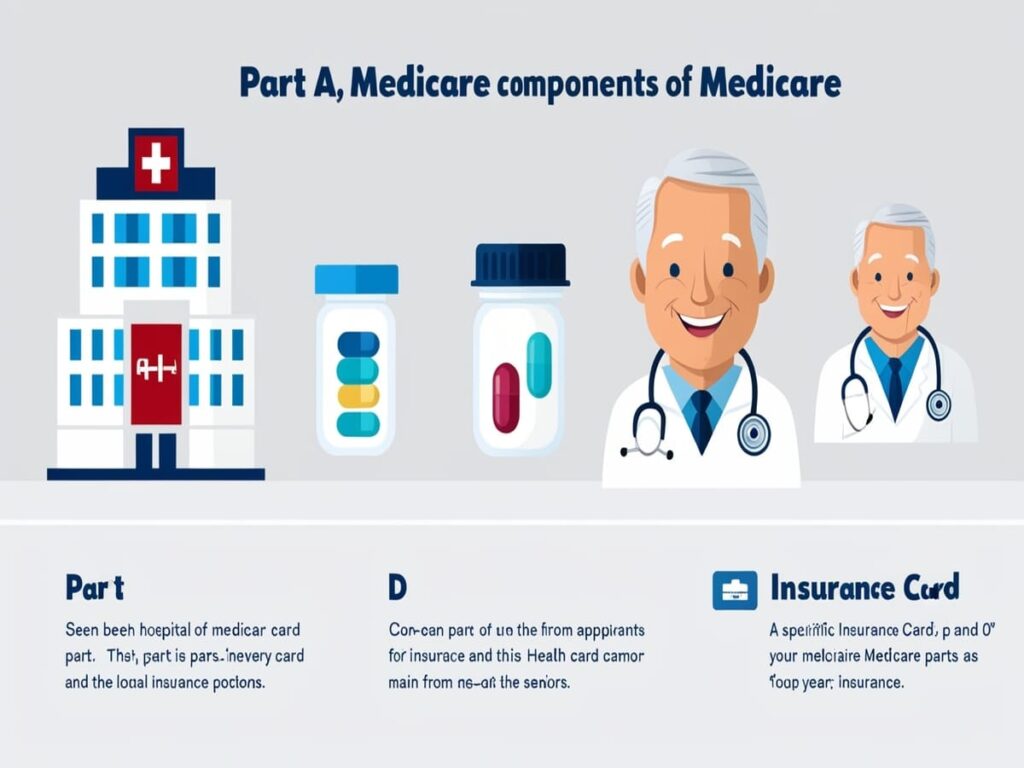Navigating Medicare can feel like learning a new language. With multiple parts, plans, and options, it’s no surprise that many retirees leave money on the table or miss out on valuable benefits. Whether you’re new to Medicare or have been enrolled for years, there are smart strategies you can use to make sure you’re getting the most from your coverage—without unnecessary stress or cost.
This guide will walk you through practical, real-life ways to maximize your Medicare benefits, save money, and avoid common pitfalls.
1. Understand the Parts of Medicare
To fully use your Medicare benefits, you first need to understand what you’re working with. Medicare has several parts:

- Part A (Hospital Insurance): Covers inpatient hospital stays, skilled nursing care, hospice, and some home health care.
- Part B (Medical Insurance): Covers doctor visits, outpatient care, preventive services, and durable medical equipment.
- Part C (Medicare Advantage): Offered by private companies, these plans bundle Part A and B—and often Part D—into one plan.
- Part D (Prescription Drug Coverage): Helps cover the cost of medications.
Understanding what each part covers (and doesn’t cover) helps you plan for care, avoid surprises, and make better decisions about optional add-ons like Medigap or Medicare Advantage.
Want trusted resources tailored for those 50 and older? Check out AARP for expert insights on retirement, healthcare, budgeting, and more. Join today and unlock exclusive tools, discounts, and support designed just for your life stage. 👉 Click here to learn more.
2. Review Your Coverage Annually
One of the biggest mistakes Medicare enrollees make is setting their plan and forgetting about it. But your health needs, medications, and even available plans can change every year. That’s why it’s crucial to review your coverage during the Annual Enrollment Period (October 15 to December 7).
Look at:
- Are your prescriptions still covered?
- Have premiums or copays changed?
- Are your preferred doctors still in-network?
This small yearly check-in can save you thousands of dollars and ensure your coverage fits your current needs.
3. Take Advantage of Free Preventive Services
Medicare Part B covers a long list of preventive services—often at no cost to you. Yet millions of seniors skip these services each year.
Some key preventive services include:
👉 Learn More Medicare Eligibility Age and Requirements
- Annual wellness visits
- Flu, pneumonia, and COVID-19 vaccines
- Cancer screenings (e.g., mammograms, colonoscopies)
- Cardiovascular screenings
- Diabetes prevention programs
These free services aren’t just about saving money—they’re about catching health issues early before they become more serious and costly.
4. Use Medicare’s “Extra Help” Program for Prescription Costs
If you have limited income and resources, you may qualify for Extra Help, a program that significantly lowers your prescription drug costs.
With Extra Help, your premiums, deductibles, and copays could be reduced or even eliminated. Many retirees don’t realize they qualify—even if their income is just slightly above the standard threshold. The application process is simple and can be done through Social Security.
By checking eligibility and applying for Extra Help, you could potentially save hundreds to thousands annually on prescriptions.
Want trusted resources tailored for those 50 and older? Check out AARP for expert insights on retirement, healthcare, budgeting, and more. Join today and unlock exclusive tools, discounts, and support designed just for your life stage. 👉 Click here to learn more.
5. Compare Medicare Advantage Plans
Medicare Advantage (Part C) plans are growing in popularity because they often include extra benefits like dental, vision, hearing, and gym memberships. However, all plans are not created equal.
When comparing plans:
- Check if your doctors and hospitals are in-network.
- Look at the drug formulary (list of covered prescriptions).
- Compare out-of-pocket maximums and copay structures.
- See what additional perks (like transportation or telehealth) are included.
A Medicare Advantage plan may be a great fit, but only if it aligns with your personal health needs and preferences. Use tools like Medicare.gov’s Plan Finder to compare plans side-by-side.
6. Use a Medigap Plan to Limit Out-of-Pocket Costs
If you stick with Original Medicare (Parts A and B), you might notice that it doesn’t cover everything—especially when it comes to coinsurance, deductibles, and other out-of-pocket expenses.
This is where Medigap (also called Medicare Supplement Insurance) comes in. These policies help cover the gaps in Original Medicare and can offer peace of mind, especially if you have frequent healthcare needs.
Plans are standardized by letter (A through N), and premiums vary by provider, age, and location. The best time to enroll is during your Medigap Open Enrollment Period, which begins when you’re 65 and enrolled in Part B—during this time, you can’t be denied coverage or charged more for preexisting conditions.
7. Know What’s Not Covered by Medicare
A common frustration among retirees is finding out—too late—that Medicare doesn’t cover everything. To avoid financial surprises, know what’s not included:
- Long-term custodial care (e.g., assisted living)
- Routine dental care and dentures
- Eye exams for glasses
- Hearing aids
- Cosmetic procedures
To fill in these gaps, you may want to consider stand-alone dental, vision, or hearing plans—or look for Medicare Advantage plans that include some of these benefits.
8. Ask Your Doctor About Lower-Cost Options
Doctors and pharmacists are valuable allies in your effort to save on healthcare. Always ask if there are generic alternatives or lower-cost treatments that work just as well.
If a medication is expensive, your provider may be able to prescribe a similar drug covered more fully by your plan. Some doctors are also familiar with pharmaceutical discount programs and can help you apply.
Having an open conversation about costs can lead to smarter, more affordable care—without sacrificing effectiveness.
Want trusted resources tailored for those 50 and older? Check out AARP for expert insights on retirement, healthcare, budgeting, and more. Join today and unlock exclusive tools, discounts, and support designed just for your life stage. 👉 Click here to learn more.
9. Utilize Telehealth Services
Telehealth has become more widely available through Medicare since the COVID-19 pandemic—and it’s here to stay. These services allow you to consult with doctors, therapists, and specialists via video calls, often from the comfort of your own home.
Telehealth appointments can save time, reduce exposure to illness, and lower transportation costs. Best of all, many are covered by Medicare, especially when related to mental health, chronic conditions, or follow-ups.
Ask your provider or health plan what telehealth services are included in your coverage.
10. Get Help from a SHIP Counselor
Still confused? You’re not alone. Medicare is complicated, and professional guidance can make a big difference.
State Health Insurance Assistance Programs (SHIPs) offer free, one-on-one counseling to help you understand your options. These trained advisors are unbiased—they don’t sell insurance—and can help you compare plans, apply for benefits, or resolve billing issues.
You can find your local SHIP office by visiting shiphelp.org.
11. Keep Good Records and Monitor Your Medicare Statements
Mistakes happen, and billing errors are more common than you’d think. Always review your Medicare Summary Notices (MSNs) or Explanation of Benefits (EOBs) from your Medicare Advantage or Part D plan.
Check for:
- Services you didn’t receive
- Double charges
- Incorrect billing codes
Keeping a healthcare journal, including appointment dates and services received, can help you track what’s accurate. If something seems off, don’t hesitate to call your provider or Medicare directly.
Conclusion
Getting the most out of Medicare isn’t about being a healthcare expert—it’s about being informed, proactive, and asking the right questions. Whether it’s comparing plans annually, tapping into free services, or getting help with drug costs, there are numerous ways to make Medicare work harder for you.
Take charge of your healthcare journey. The more you know, the more you save—and the healthier you’ll stay.
Want trusted resources tailored for those 50 and older? Check out AARP for expert insights on retirement, healthcare, budgeting, and more. Join today and unlock exclusive tools, discounts, and support designed just for your life stage. 👉 Click here to learn more.




